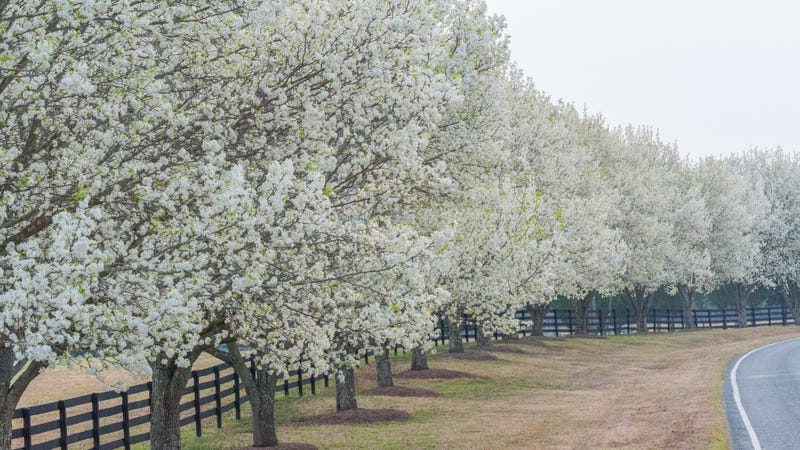
The sale of Bradford pear trees will be banned in South Carolina beginning on October 1, 2024, as many nurseries throughout the state are trying to empty out their inventory before the ban goes into effect.
The ban was first announced in June 2021, as the trees pose a threat to the state ecosystem because they can be spread quickly by birds and have large, sharp thorns that have damaged some forestry vehicles, according to WIS-TV.
The invasive tree also has a "foul smell" and was called a "nuisance" by a local nursery worker.
"They’re a nuisance tree, very difficult to get rid of completely," Davis Sanders, who works with the South Pleasantburg Nursery, said, according to Fox Carolina. "The pollen is highly allergenic and it has a very foul smell. There’s really nothing good about that tree."
David Jenkins, Forest Health Program Manager of the S.C. Forestry Commission, explained how the trees impact the local birds and insects.
"It’s not native here so a lot of our insects don’t feed on it," Jenkins said. "And our birds feed on insects so it’s a cascading effect and that Bradford tree is taking place of a native tree that would support a large population of our native insects and then onto birds."
Clemson University started the "Bradford Pear Bounty" program in 2020, allowing people to trade in their tree in exchange for a native plant from South Carolina for free. They also advise that people hire a tree removal expert to cut the tree down to its stump and then use some household herbicide on the stump.
"Bradford pears are not native to the U.S. and have been widely planted in South Carolina for years," Clemson said. "While the blossoms are pretty, they have a pungent odor and the trees often break during storms. Even worse, Bradford pear trees directly contribute to one of the worst invasive plant species in the Southeast – the callery pear.
"This program will give homeowners the option to remove Bradford pears and replace them with native trees."
The "Bradford Pear Bounty" allows for people to exchange up to five Bradford pear trees and they will receive an equal amount in return of free, native, healthy trees as replacement.
Dr. David Coyle, Assistant Professor of Forest Health and Invasive Species at Clemson University, understands that people may love the Bradford pear tree's appearance, but they also are weak and can split or snap easily during intense weather.
"That, to me, is one of the number one reasons to get that thing out of there," Coyle said. "And, you’ll hear a lot of people say, ‘Well, I like it, it’s got pretty flowers in the spring, it’s got great red color in the fall.' We’ve got native stuff that has the same characteristics."
When the place goes into effect in 2024, it won't be illegal for people to still own a Bradford pear tree, as the law only bans the purchasing and selling of the tree.
"If you do have one in your yard it would be better to replace it with something native that is going to support our native ecosystem," Jenkins said.


